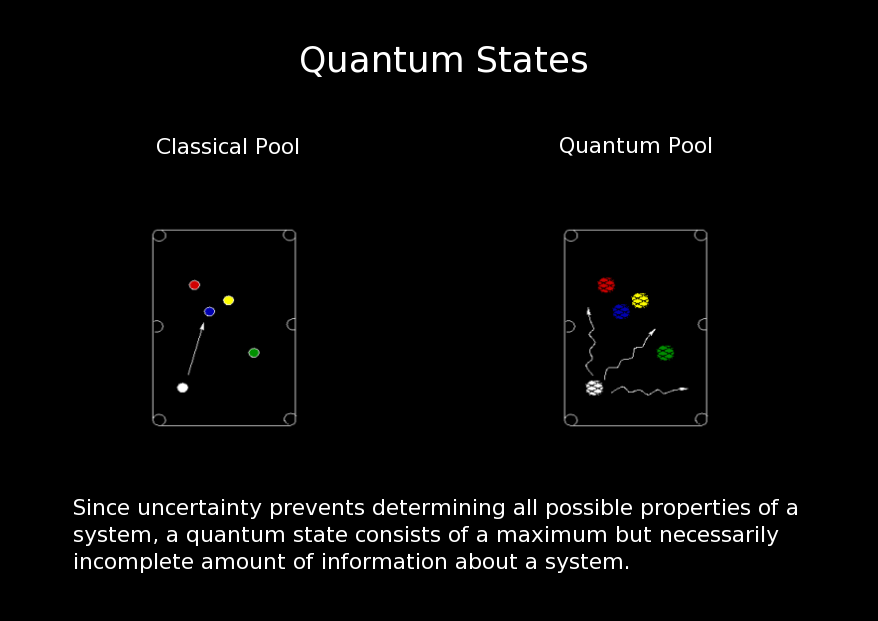










In classical physics, the state of a system is the collection of all information required to give a complete description of the system. This is the information necessary for predicting the future behavior of the system or possibly extrapolating the past behavior. For example, the state of a classical pool ball on a pool table, say the cue ball right here, may consist of the ball's position, all 3 components of the ball's momentum, and some information about the mechanical properties of the ball, such as how much energy it absorbs in a collision with another ball.
In contrast, the uncertainty principle restricts the information that may be gathered regarding the state of a system. For a quantum pool ball, such as the quantum cue ball over here, which could, for example, be an electron, it isn't possible to measure the position and the components of momentum at the same time. This means that any description of a quantum system will always be incomplete. So we define a quantum state as any collection of information about the state of a system that is as complete as possible under the restrictions that the uncertainty principle imposes. Notice that there is only a single classical state for a given system whereas there are many possible quantum states. For example, we could characterize an electron by measuring its position precisely, in complete disregard for its momentum. Alternatively, we could measure the electron's momentum precisely and remain ignorant about its position. Or we could measure both the electron's position and momentum to reasonable levels of accuracy in accordance with the uncertainty principle.
I am the author of the images and text except where otherwise indicated. Please contact me for permission if you wish to use any of my images or text.
Created on Wednesday 03 May 2006 by Mark A. Martin with KPresenter